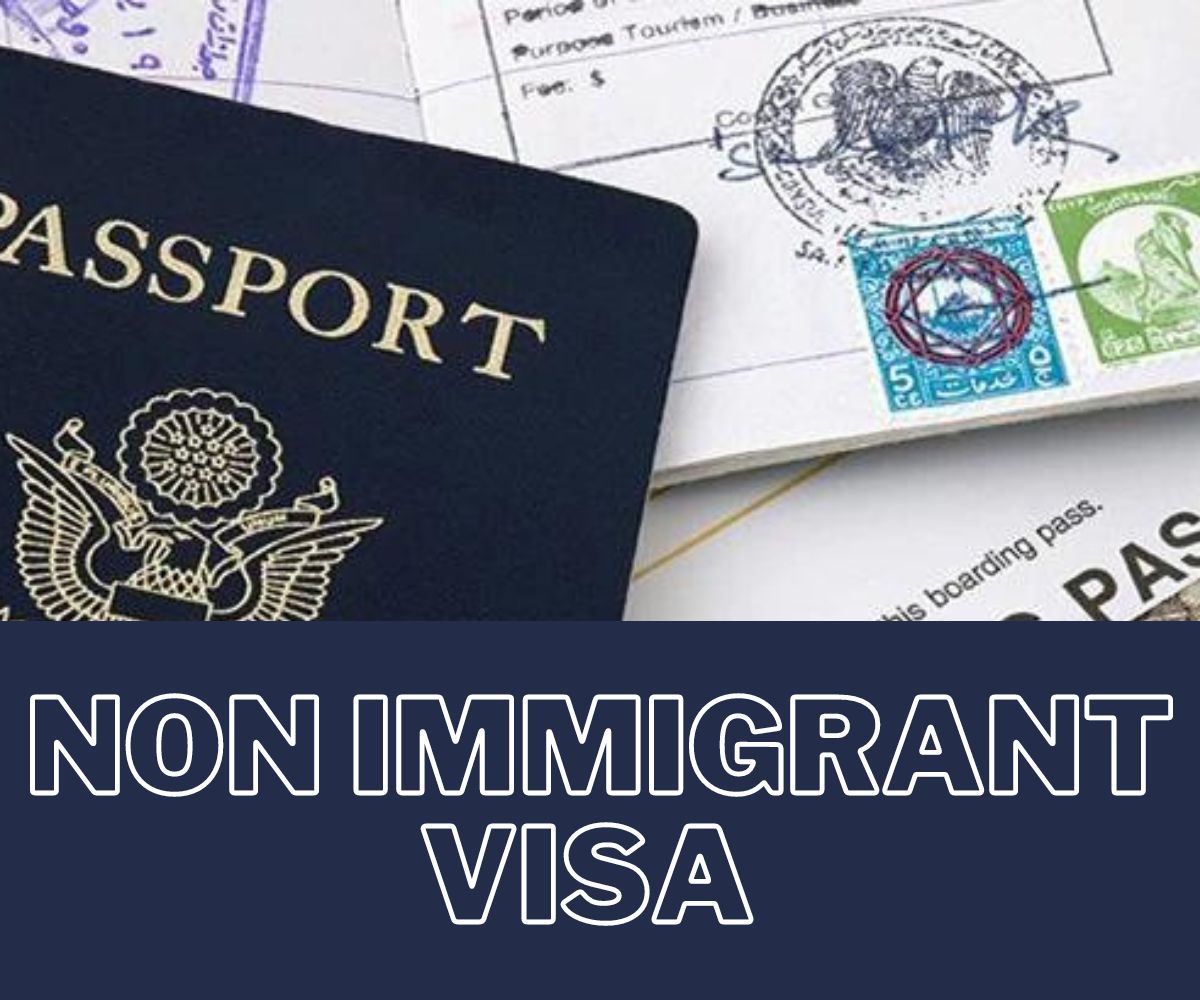
There are numerous short-term reasons to visit the United States, including tourism, business, education, and temporary job. All non-U.S. citizens and permanent residents will still be required to have a visa.
Temporary visas, also known as “nonimmigrant visas” allow holders to enter the United States for certain purposes, as long as their stays are temporary and have a definite end date.
What is a nonimmigrant visa?
Nonimmigrant visas are for persons who seek to visit the United States temporarily for tourism, medical treatment, business, temporary employment, or study. However, because nonimmigrant visas are transitory, they cannot be utilised to live permanently in the United States, and they typically have an expiration date or a maximum stay period.
Immigrant visas, on the other hand, are for those who wish to live permanently in the United States and typically require sponsorship by family or employer. ADAL IMMIGRATIONS LLP PVT. LTD. can assist you in obtaining a green card if you wish to remain in the United States permanently.
Who needs a nonimmigrant visa?
Except for U.S. citizens and permanent residents, everyone needs a visa to enter and remain in the United States legally. To temporarily enter the United States, you will likely require a nonimmigrant visa, whether you are ninety days old or ninety years old.
Certain nationals from certain countries may travel to the United States for tourist, business, or transit purposes for up to 90 days without a visa. This programme is known as the “Visa Waiver Program,” or VWP, and it is utilised by citizens of 38 countries and territories, including the majority of European Union nations.
Canadian natives are not need to obtain a visa to enter the United States unless they intend to work, study, invest, or immigrate. Depending on the conditions, the maximum length of stay can range between six months and one year.
What kinds of nonimmigrant visas are there?
Nonimmigrant visas typically cover temporary employment, study, and tourist or business visits.
Employment
Temporary work visas are provided to foreign nationals entering the United States for temporary employment. This position cannot be permanent or indefinite; hence, it is typically seasonal or transient. A petition is still necessary from a prospective employer, who must submit an application to U.S. authorities in advance. A worker then uses an authorised petition to get a nonimmigrant work visa.
The most popular visas awarded to temporary workers in the United States are the H visas (H-1B, H-1B1, H-2A, H-2B, and H-3). H-1B and H-1B1 visas are for jobs requiring a bachelor’s degree or higher in a certain academic subject, as well as an employer sponsor.
H-2A and H-2B visas are for seasonal agricultural or non-agricultural work for which there are no qualified United States citizens. Other temporary work visas are available, including those for persons transferring inside a company with a U.S. office (L-1A or L-1B), those with special abilities (O-1), artists or entertainers (P-1A, P1-B, P2, P-3), and those participating in an international cultural exchange (Q visa)
Study
The United States attracts tens of thousands of students annually as a result of its numerous renowned educational institutions and study programmes. To study in the United States, a visa is required. The F-1 visa is for students enrolled full-time in a recognised U.S. educational institution, such as colleges, high schools, seminaries, and conservatories. While on an F-1 visa, only on-campus employment is permitted. The F-2 visa is also available for the spouse or children of F-1 visa holders. Lastly, there is an F-3 for “border commuters” who reside in Canada or Mexico and commute to the United States for educational purposes.
The M visa is offered for vocational trainees to study in vocational or other accredited non-academic institutions, excluding language training programmes, which require a F visa.
There is also the J-1 visa, which is provided to exchange visitors engaged in employment and study programmes. This can include au pairs, camp counsellors, teachers, interns, and trainers. Participation in programmes encouraging cultural interchange is required, and applicants must meet eligibility requirements, including English competence. J-2 visas are issued to dependents of J-1 visa holders.
ADAL Immigrations can assist you with submitting your F-1 student or J-1 exchange visa application, preparing for your visa interview, and answering any immigration-related issues you may have.
Visitor
The instantly known expression “Business or pleasure?” can be applied to this category of brief visits in the United States. Visitors can travel to the United States for tourist or temporary commercial purposes, such as visiting U.S. companies and contacts.
Unless you are a citizen of a Visa Waiver Program-eligible country, you will require a B-1 or B-2 visa to travel to the United States for leisure or business. If available, you must supply documentation detailing the purpose of your visit and your expected itinerary.
Depending on your nationality, the duration of your visa can range from three months to ten years. This is the period during which you can use your visa to enter the United States, and you are permitted repeated entries throughout this time.
The duration of a B-1 or B-2 visa holder’s stay in the United States is set by a U.S. official at the port of entry, with a maximum of six months. It is possible to extend this period while in the United States, but the form must be submitted 45 days before to the visa’s expiration and success is not assured.
Certain nations are eligible for the Visa Waiver Program, but there are restrictions: you must enrol in the ESTA programme prior to flying travel, your stay is limited to 90 days and cannot be extended, and you must never have had a U.S. visa refused or denied. You must also demonstrate strong ties to your native nation and that you will not overstay your visa.

